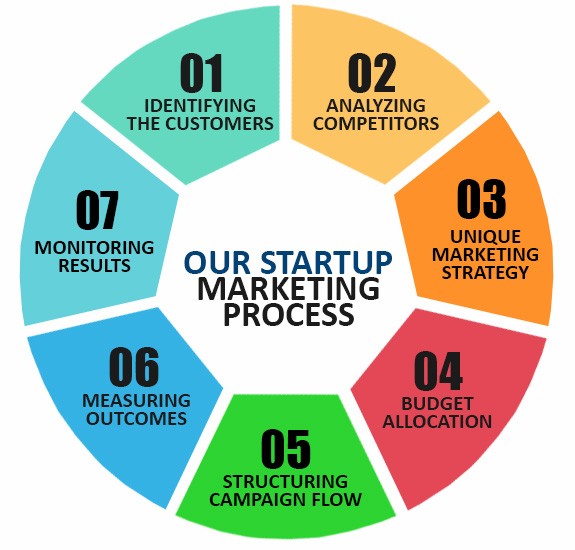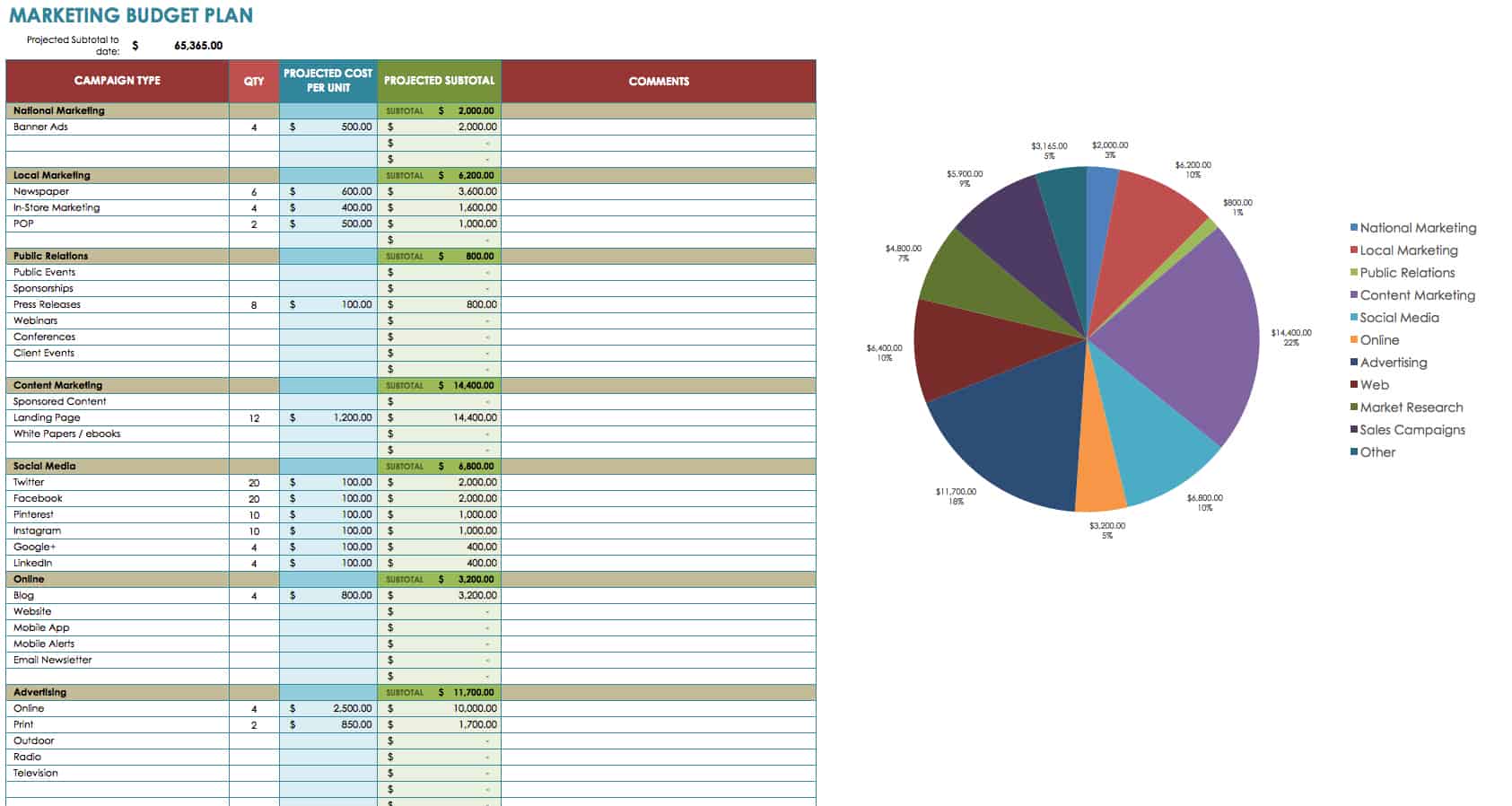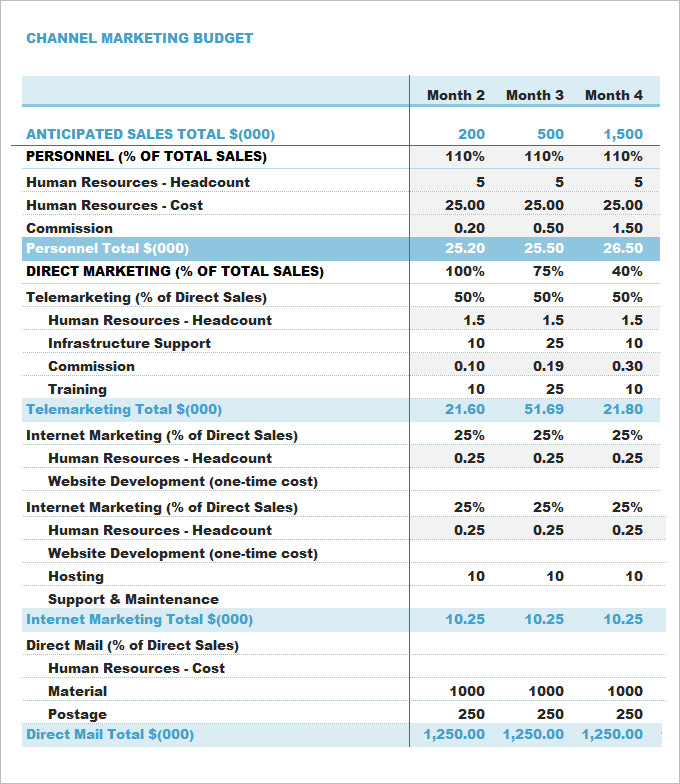Why Marketing on a Limited Budget Requires Creativity and Resourcefulness
Marketing a startup with no budget can be a daunting task, but it’s not impossible. In fact, many successful startups have thrived on limited marketing budgets, leveraging innovative and cost-effective strategies to reach their target audiences and build brand awareness. The key to success lies in understanding the challenges of marketing on a shoestring budget and being willing to think outside the box.
One of the primary challenges of marketing a startup with no budget is the need to compete with larger, more established companies that have deeper pockets. However, this can also be an opportunity to get creative and find new ways to reach your target audience. For example, instead of relying on expensive advertising campaigns, you could focus on building a strong social media presence, creating engaging content, and leveraging partnerships and collaborations to amplify your reach.
Another challenge of marketing on a limited budget is the need to measure and track your efforts effectively. Without a large budget to spend on marketing analytics tools, you’ll need to rely on free or low-cost alternatives, such as Google Analytics, to track your website traffic, engagement, and conversion rates. However, this can also be an opportunity to get more hands-on and involved in the marketing process, allowing you to make data-driven decisions and adjust your strategy accordingly.
So, how can you market a startup with no budget effectively? The answer lies in being resourceful, creative, and willing to take calculated risks. By leveraging social media, creating valuable content, building partnerships, and optimizing your website for search engines, you can reach your target audience and build brand awareness without breaking the bank. In the following sections, we’ll explore each of these strategies in more detail, providing you with the tools and insights you need to market your startup successfully, even on a limited budget.
Leveraging Social Media to Reach Your Target Audience
Social media is a crucial component of any marketing strategy, especially for startups with no budget. With billions of users across various platforms, social media offers a vast and engaged audience that can be leveraged to build brand awareness, drive website traffic, and generate leads. When it comes to marketing a startup with no budget, social media is an ideal channel to focus on, as it’s free to use and can be highly effective.
To get the most out of social media, it’s essential to create engaging content that resonates with your target audience. This can include a mix of promotional, educational, and entertaining content, such as blog posts, videos, infographics, and more. By creating high-quality content, you can attract and retain a clearly defined audience, and drive traffic to your website.
Another key aspect of social media marketing is building a community around your brand. This involves interacting with your followers, responding to comments and messages, and creating a sense of belonging among your audience. By building a community, you can foster loyalty and advocacy, and encourage your followers to share your content with their networks.
When it comes to choosing social media platforms, it’s essential to focus on the channels where your target audience is most active. For example, if your startup is B2B-focused, LinkedIn may be a better choice than Instagram. Similarly, if your startup is consumer-facing, Facebook and Twitter may be more effective.
Some effective social media marketing strategies for startups with no budget include:
- Utilizing Facebook Groups to build a community around your brand
- Creating engaging Twitter threads to share your story and showcase your expertise
- Using Instagram Stories and IGTV to share behind-the-scenes content and sneak peeks
- Leveraging LinkedIn to share thought leadership content and establish your startup as a industry authority
By incorporating these strategies into your social media marketing plan, you can effectively reach and engage with your target audience, even on a limited budget.
Content Marketing on a Budget: Creating Valuable Content without Breaking the Bank
Content marketing is a crucial component of any marketing strategy, especially for startups with no budget. By creating high-quality, engaging content, you can establish your startup as a thought leader in your industry, drive website traffic, and generate leads. The good news is that content marketing doesn’t have to break the bank. With a little creativity and resourcefulness, you can create valuable content that resonates with your target audience without spending a fortune.
So, how can you create high-quality content on a budget? Here are a few tips to get you started:
- Start a blog: Blogging is a great way to create content that showcases your expertise and provides value to your target audience. You can write about industry trends, share your experiences, and provide tips and advice.
- Create videos: Videos are a great way to create engaging content that can be shared on social media, your website, and other channels. You can create videos on a budget using a smartphone and some basic editing software.
- Podcasting: Podcasting is another great way to create content that can be shared with a wider audience. You can create a podcast on a budget using a microphone and some basic recording software.
- Repurpose content: Repurposing content is a great way to get more mileage out of your existing content. You can turn blog posts into videos, videos into podcasts, and so on.
When it comes to creating content on a budget, it’s essential to focus on quality over quantity. Instead of churning out low-quality content that doesn’t provide any value to your target audience, focus on creating high-quality content that resonates with them. This will help you establish your startup as a thought leader in your industry and drive website traffic and leads.
Additionally, you can also use free content creation tools such as:
- Canva: A graphic design platform that provides a wide range of templates and design tools.
- Google Trends: A tool that helps you identify trending topics and keywords.
- Answer the Public: A tool that provides you with questions and topics that people are searching for online.
By using these tools and focusing on quality over quantity, you can create high-quality content that resonates with your target audience and helps you achieve your marketing goals.
Email Marketing: Building Relationships and Driving Conversions
Email marketing is a highly effective way to build relationships with your target audience and drive conversions, even on a limited budget. By creating and sending targeted email campaigns, you can nurture leads, build trust, and ultimately drive sales. In this section, we’ll explore the importance of email marketing for startups with no budget and provide tips on how to get started.
Building an email list is the first step in creating a successful email marketing campaign. You can build your list by adding a sign-up form to your website, offering incentives such as discounts or free resources, and promoting your list on social media. Once you have a list, you can start creating and sending targeted email campaigns.
When it comes to crafting compelling email campaigns, there are a few key things to keep in mind. First, make sure your subject line is attention-grabbing and relevant to your content. Next, keep your email copy concise and focused on one key message or call-to-action. Finally, make sure to include a clear and prominent call-to-action, such as a link to your website or a promotion.
Measuring the ROI of your email marketing campaigns is also crucial. You can use analytics tools such as Google Analytics or Mailchimp to track open rates, click-through rates, and conversion rates. This will help you understand what’s working and what’s not, and make data-driven decisions to improve your campaigns.
Some effective email marketing strategies for startups with no budget include:
- Segmenting your email list to create targeted campaigns
- Using automation tools to streamline your email marketing process
- Creating a welcome series to onboard new subscribers
- Using social proof such as customer testimonials and reviews
By incorporating these strategies into your email marketing plan, you can build relationships with your target audience, drive conversions, and ultimately grow your startup.
Additionally, you can also use free email marketing tools such as:
- Mailchimp: A popular email marketing platform that offers a free plan for up to 2,000 subscribers.
- Sendinblue: A comprehensive email marketing platform that offers a free plan with unlimited subscribers.
- Tinyletter: A simple and easy-to-use email marketing platform that offers a free plan with unlimited subscribers.
By using these tools and incorporating the strategies outlined above, you can create a successful email marketing campaign that drives results for your startup.
Partnerships and Collaborations: Amplifying Your Reach through Strategic Partnerships
Forming partnerships and collaborations with other businesses, influencers, or organizations can be a highly effective way to expand your reach and build credibility, even on a limited budget. By partnering with other companies or individuals, you can tap into their audience, expertise, and resources, and create mutually beneficial relationships that drive growth and revenue.
There are many different types of partnerships and collaborations that can be beneficial for startups with no budget. For example, you could partner with a complementary business to offer joint products or services, or collaborate with an influencer to promote your brand to their followers. You could also partner with a non-profit organization or charity to create a social impact and build brand awareness.
When it comes to forming partnerships and collaborations, it’s essential to be strategic and intentional. This means identifying potential partners that align with your values, mission, and goals, and reaching out to them with a clear and compelling proposal. It’s also important to establish clear expectations and guidelines for the partnership, and to communicate regularly to ensure that both parties are on the same page.
Some effective partnership and collaboration strategies for startups with no budget include:
- Identifying potential partners through social media and online research
- Reaching out to potential partners with a clear and compelling proposal
- Establishing clear expectations and guidelines for the partnership
- Communicating regularly to ensure that both parties are on the same page
By forming strategic partnerships and collaborations, you can amplify your reach, build credibility, and drive growth and revenue for your startup, even on a limited budget.
Additionally, you can also use online platforms such as:
- PartnerUp: A platform that connects businesses with potential partners and collaborators.
- Collaboration Hub: A platform that facilitates partnerships and collaborations between businesses and organizations.
- Startup Grind: A platform that connects startups with potential partners, investors, and collaborators.
By using these platforms and incorporating the strategies outlined above, you can form strategic partnerships and collaborations that drive growth and revenue for your startup.
Optimizing Your Website for Maximum Visibility
Optimizing your website for search engines is crucial for startups with no budget, as it allows you to reach a wider audience and drive organic traffic to your site. By optimizing your website for search engines, you can improve your visibility, increase your online presence, and drive more conversions.
Keyword research is a critical step in optimizing your website for search engines. This involves identifying the keywords and phrases that your target audience is searching for, and incorporating them into your website’s content. You can use tools like Google Keyword Planner, Ahrefs, or SEMrush to conduct keyword research and identify relevant keywords for your startup.
On-page optimization is another important aspect of optimizing your website for search engines. This involves optimizing your website’s content, meta tags, and internal linking structure to make it more search engine friendly. You can use tools like Yoast SEO or All in One SEO Pack to optimize your website’s on-page elements.
Technical SEO is also crucial for optimizing your website for search engines. This involves optimizing your website’s technical elements, such as page speed, mobile responsiveness, and SSL encryption, to make it more search engine friendly. You can use tools like Google PageSpeed Insights or GTmetrix to identify technical SEO issues and optimize your website’s technical elements.
Some effective website optimization strategies for startups with no budget include:
- Conducting keyword research to identify relevant keywords and phrases
- Optimizing on-page elements, such as meta tags and internal linking structure
- Improving page speed and mobile responsiveness
- Implementing SSL encryption to secure your website
By optimizing your website for search engines, you can improve your online visibility, drive more traffic to your site, and increase conversions. Remember to stay up-to-date with the latest SEO trends and best practices to ensure that your website remains optimized and competitive.
Additionally, you can also use online tools such as:
- Google Search Console: A free tool that helps you monitor and maintain your website’s presence in Google search results.
- Google Analytics: A free tool that helps you track and analyze your website’s traffic and behavior.
- Ahrefs: A comprehensive SEO tool that helps you conduct keyword research, track backlinks, and optimize your website’s content.
By using these tools and incorporating the strategies outlined above, you can optimize your website for maximum visibility and drive more traffic and conversions to your site.
Measuring and Tracking Your Marketing Efforts
Measuring and tracking your marketing efforts is crucial for startups with no budget, as it allows you to evaluate the effectiveness of your marketing strategies and make data-driven decisions to optimize your approach. By tracking your marketing efforts, you can identify what’s working and what’s not, and adjust your strategy accordingly.
There are several key metrics that you should track when measuring and tracking your marketing efforts. These include:
- Website traffic: Track the number of visitors to your website, including page views, unique visitors, and bounce rate.
- Engagement metrics: Track engagement metrics such as likes, shares, comments, and followers on social media.
- Conversion rates: Track the number of conversions, such as leads, sales, or sign-ups, generated from your marketing efforts.
- Return on investment (ROI): Track the ROI of your marketing efforts, including the cost of each campaign and the revenue generated.
There are several tools that you can use to measure and track your marketing efforts, including:
- Google Analytics: A free tool that provides detailed insights into website traffic, engagement metrics, and conversion rates.
- Google Tag Manager: A free tool that allows you to track and manage marketing tags and pixels on your website.
- Social media analytics tools: Tools such as Hootsuite Insights, Sprout Social, and Agorapulse provide detailed insights into social media engagement metrics and conversion rates.
By tracking and measuring your marketing efforts, you can optimize your approach and improve the effectiveness of your marketing strategies. Remember to set clear goals and objectives for your marketing efforts, and adjust your strategy accordingly based on the data and insights you gather.
Additionally, you can also use online tools such as:
- HubSpot: A comprehensive marketing, sales, and customer service platform that provides detailed insights into marketing efforts.
- Marketo: A marketing automation platform that provides detailed insights into marketing efforts and allows you to track and manage marketing campaigns.
- Mixpanel: A product analytics tool that provides detailed insights into user behavior and allows you to track and manage marketing efforts.
By using these tools and incorporating the strategies outlined above, you can measure and track your marketing efforts effectively and optimize your approach to achieve better results.
Staying Agile and Adapting to Change in a Rapidly Evolving Market
In today’s fast-paced business landscape, startups must be prepared to adapt quickly to changes in the market, industry trends, and consumer behavior. When marketing a startup with no budget, it’s essential to stay agile and responsive to these shifts to remain competitive. This means being open to new ideas, willing to pivot when necessary, and continuously monitoring and adjusting your marketing strategy.
To stay ahead of the curve, startups should prioritize ongoing market research and analysis. This involves staying up-to-date with the latest industry trends, tracking consumer behavior, and monitoring competitors’ activities. By doing so, startups can identify opportunities to innovate, improve their products or services, and adjust their marketing strategy to better meet the needs of their target audience.
Another key aspect of staying agile is being willing to experiment and try new things. This might involve testing new marketing channels, exploring different content formats, or partnering with influencers or other businesses. By embracing a culture of experimentation, startups can uncover new and effective ways to reach their target audience and build brand awareness.
Furthermore, startups should prioritize flexibility and responsiveness in their marketing strategy. This means being able to quickly adjust to changes in the market or industry, and being willing to pivot when necessary. By doing so, startups can minimize the risk of being left behind and maximize the opportunities presented by a rapidly evolving market.
In terms of specific strategies, startups can use tools like social media listening to stay on top of industry trends and consumer behavior. They can also leverage data analytics to track the effectiveness of their marketing efforts and make data-driven decisions. Additionally, startups can prioritize building strong relationships with their customers and partners, which can provide valuable insights and help them stay ahead of the curve.
Ultimately, staying agile and adaptable is critical for startups looking to market themselves with no budget. By prioritizing ongoing market research, embracing a culture of experimentation, and being willing to pivot when necessary, startups can stay ahead of the curve and achieve their marketing goals despite limited resources. By following these strategies, startups can effectively navigate the challenges of marketing on a shoestring budget and achieve long-term success.








